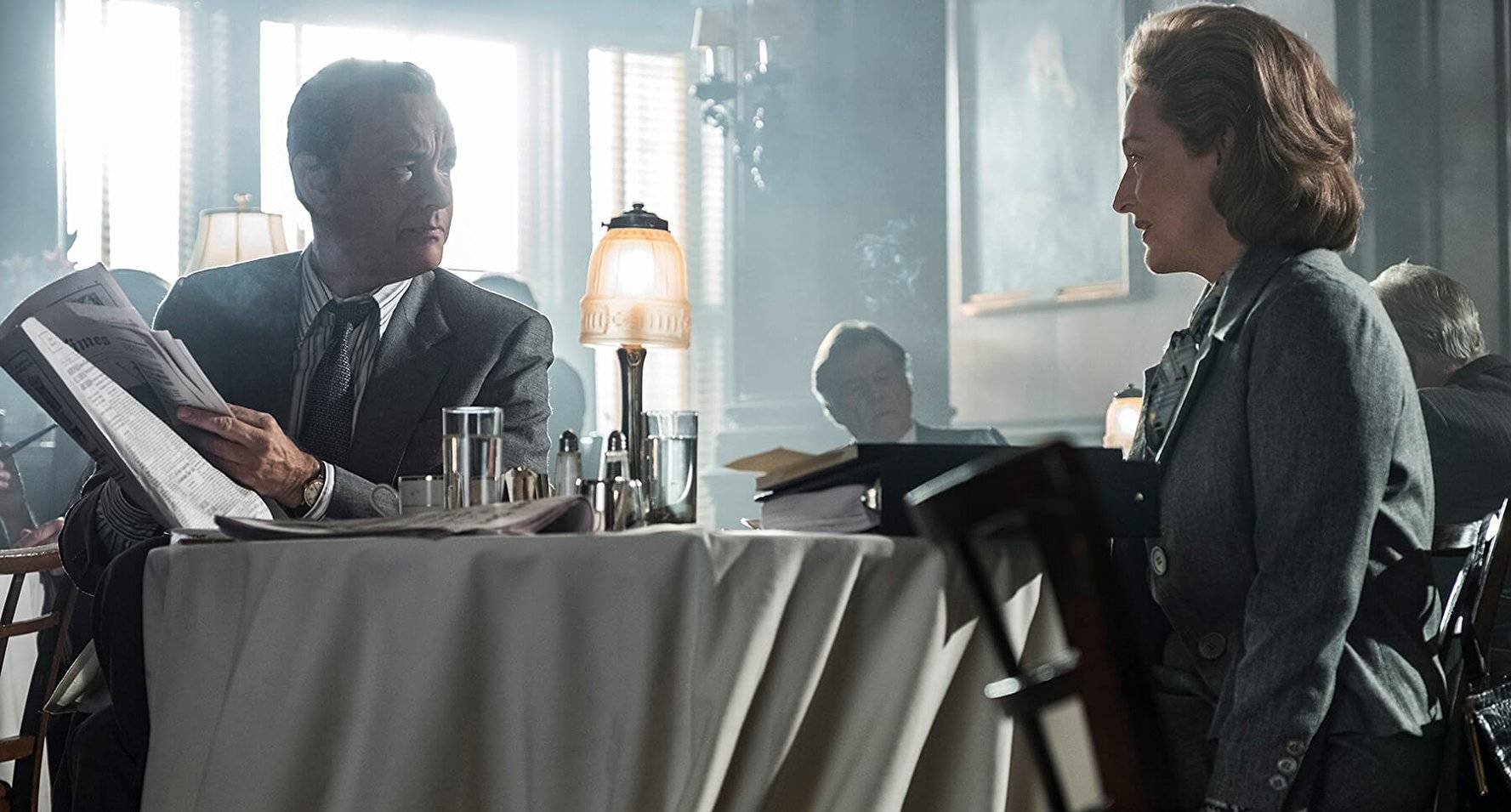The box office silence between “Infinity War” and the rest of the summer has been a little deafening. The only things on offer have been hastily released, ill-conceived comedies and oddly timed horror movies. Over the last couple of weeks I’ve been catching up on a few movies I missed when they were released at the end of last year. Last week’s “All the Money in the World” ended up being kind of a disappointment for me, so I was prepping myself for this week when I watched Steven Spielberg’s “The Post,” a movie that garnered polite praise from the critics, and a few de rigueur nominations, but not much else. One of my partners on the radio show I co-host actually told me he hated it, so I was, at best, cautiously optimistic. I needn’t have worried. While this is certainly Spielberg-lite, even the movies he phones in are better than most of the other stuff out there.
“The Post” tells the story of The Washington Post, still a relatively small newspaper at the tail end of the 1960s. The story begins at the confluence of two pivotal events for the paper. One, a public stock offering which promises to revitalize a cash-poor, family-run business, causes great anxiety for an, as yet, out of her depth owner in Katharine Graham, who inherited the business from her late husband. Graham, a lifelong socialite who hobnobs with the likes of Lyndon Johnson and Robert McNamara, never imagined being a businesswoman, and the dismissiveness with which she is treated by her own board is not helping her settle into the job.
The other event actually starts with another big name paper, The New York Times. When a conscientious dissident decides to reveal a top-secret study undertaken by the government to decide the feasibility of the war in Vietnam, the Times is the first to publish a selection of the documents. The Nixon administration rushes in to block further publication in the courts, and while the Times is battling, the full report, known as the Pentagon Papers, is funneled to the Post. The decision to publish is framed as the very battle for freedom of the press, as editor Ben Bradlee, played by Tom Hanks, argues that if Nixon can dictate what is printed and what is not, there will be no check on executive power. In the middle of all this, played in a deceptively frail manner by Meryl Streep, is Graham, finding herself torn between the expectations of her board, cautious because of the impending stock offering, her friendship with the aristocracy that desperately want the documents suppressed, and Bradlee, crusading for freedom even if it lands them all in jail.
I actually liked “The Post” quite a bit. Yes, Spielberg is cutting corners. You know he’s not focusing deeply on the details when he resorts to shorthand like opening a scene in Vietnam with Creedence Clearwater Revival’s “Green River.” To be fair, this movie was rushed. Spielberg reportedly was disturbed by Donald Trump’s dislike of the mainstream media and wanted to comment on it in as timely a fashion as he could. And timely it is, as it is not only a full-throated defense of the profession of journalism, but also a nice precursor to the women’s movement as we watch Graham go from aristocratic housewife to hardened CEO over the course of a couple of hours. Streep seems, at first, to be playing Graham so frail and wishy-washy that I was a little put-off. The real Graham, who died in 2001, however, did have a somewhat tremulous voice and was battling generations of tradition that said women simply did not make these kinds of decisions. Watching footage of Graham in interviews, you can really see what a marvelous job Streep does in this role.
Hanks, though good, has less to do as far as emoting. Mostly he stands around, arms crossed, looking either concerned or smug. But that’s fine. The real focus of this film is Graham and the Post itself. I love newspaper movies, especially ones that take place in the era of clacking typewriters and buzzing newsrooms. “The Post” has this atmosphere in spades, with plenty of shots of giant presses running huge roles of newsprint and even scenes old-style typesetting with an on-site type foundry. Maybe that doesn’t sound thrilling to everyone, but I guess I’m kind of a type-nerd.
I’m glad I watched “The Post.” It has good performances and all the trappings you want from this kind of film. No, it’s not as moving as “Spotlight,” nor even as emotional as Ron Howard’s “The Paper,” but in Spielberg’s capable hands, the movie is never less than entertaining, and might just even have something to say in this charged era. Grade: A-
“The Post” is rated PG-13 for language and brief war violence.
Chris Jenness is an art teacher, freelance graphic designer, artist and movie buff who lives in Nikiski.

